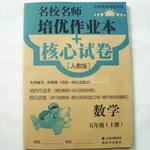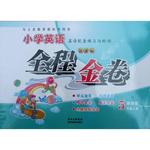题目内容
_____ to school this morning, I met a friend of mine.
A. I was walking B. Walking
C. While I walking D. Walked
B
【解析】 略

 名校名师培优作业本加核心试卷系列答案
名校名师培优作业本加核心试卷系列答案 全程金卷系列答案
全程金卷系列答案Little Mark is only 6, but he has an IQ of 200, a genius among geniuses. But his intelligence comes at a cost. His parents must keep him intellectually simulated(启发)while making sure he is like any other little boy.
Mark has been attracted by the way how the world works since he was a baby. When he was 3, Mark was reading fluently, mostly self-taught. His parents haven't been able to keep him away from books since.
"I tried many times to stop him reading. We worry about his crazy fond of reading because he constantly wants to read every-thing whatever it is.”
A psychologist at the Centre for gifted children tested Mark and gave him an IQ of 200. The average child of Mark's age has an IQ of 100. At 200, Mark is a genius-even compared with other child geniuses.
"With children like Mark you can tell that's a bright child as soon as they walk in. They just have this sort of intensity, and maybe they're not so good at communicating with people," the psychologist said. "He will never fit perfectly into a class where he's with children of his age.”But Mark's mother worries about the "socially isolated" labels. "Nobody wants their child to grow up with that image. I want him to communicate with others freely, but not to be frustrated academically, so it's really hard to find a balance," she says.
Helen Dudeney from the Talented and Gifted Children Association says Mark is one in a million with such a high IQ. She points out that geniuses are still rare and difficult for the public education system to handle. "The lack of coping comes because teachers aren't trained in teaching gifted children," says Dudeney.
Helen believes it's also extremely important for them to be recognized and supported in their talents. Mark's parents are trying to figure out how best to help Mark. At the moment, there are few options. Mark finds first year work boring and simple, but he must learn to complete the work. His mother says, "We just want to be happy. Just to have a happy childhood and want to go to school every day.”
【小题1】By saying "But his intelligence comes at a cost. ",the author means that
| A.Mark must pay for his intelligence at a high price |
| B.Mark's intelligence brings him negative effects at the same time |
| C.Mark's intelligence results from his parents |
| D.Mark's parents make Mark clever at all costs |
| A.Mark's parents are very satisfied with his love for reading. |
| B.Mark began to teach himself reading at the age of 3. |
| C.Many child geniuses are not good at communicating with others. |
| D.It is hard for parents to bring up a genius. |
________.
| A.about 4,400 | B.about 5,500 | C.about 6,600 | D.about 7,700 |
| A.A genius' craziness for books |
| B.The life of the genius' parents |
| C.The burden of being gifted |
| D.The characteristics of Mark |
Jack London is a famous American writer. His most widely known book is the Call of the Wild, the story of the adventure of a large dog in the frozen north.
Jack London was born on January 12, 1876, in San Francisco, California. His family was very poor, and Jack had to leave school to make money. He worked hard at many different jobs.
Later, Jack returned to school, but he didn’t stay. He wrote, “Life and pocket book were both too short.” In 1897, he went to Alaska to find gold. Instead, he found ideas there for his book stories. He returned home and started to write. His writings were successful, and he became rich and famous in his twenties.
Jack London was not a happy man, however. In poor health, he took his own life in 1916. He was then only 40 years old.
【小题1】 Jack London went to Alaska to __________________.
| A.find ideas for his books | B.find gold | C.write his books and stories | D.find jobs |
| A.he had to work to help his family | B.he had completed his education |
| C.he wanted to become a writer | D.he wanted to find gold. |
| A.His life in Alaska. | B.His childhood friend. |
| C.A large dog in the north. | D.His pocket book. |
| A.He became famous but remained poor all his life. |
| B.Though he was poor, he was always happy. |
| C.He was not famous until he died in 1916. |
| D.He killed himself because of poor health. |
As a boy ,Mark Twain caused much trouble for his parents . He used to play practical jokes on all his friends and neighbors .The nature of his jokes often led to violence. He hated to go to school, and he constantly ran away from home. He always went in the direction of the nearby Mississippi .He liked to sit on the bank of the river for hours at a time and just gaze at the mysterious island and the passing boats. He learned many things about the river during those days. He learned all about its history and unusual people who rode up and down it . He never forgot those scenes and those people .He later made them part of the history of America in the books Tom Sawyer and Huckleberry Finn.
Mark Twain received his genius (天才)from his mother . Obviously he didn’t get it from his father . He once stated that he had never seen a smile on his father’s face .On the other hand, his mother had the rare ability to say humorous things. The same ability made Mark Twain an extremely humorous public speaker.
【小题1】Because of the nature of his jokes when he was a child , Mark Twain would
| A.ran away from school |
| B.cause his parents to quarrel with others |
| C.get into trouble with his friends and neighbors |
D.like to sit on the bank of the Mississippi River River |
| A.Mark Twain’s father was a cruel man |
| B.Mark Twain never attended school on time |
| C.Mark Twain often went boating in the nearby river |
| D.Mark Twain’s mother was something of a humorist |
| A.the Mississippi and the people riding on it | B.his friends and neighbors |
| C.his school life | D.his parents |
| A.his practical jokes | B.his father’s seriousness |
| C.the history of the Mississippi | D.his mother’s genius for humor |
Remember those big, colorful books with large pictures of balls or apples when you were a little kid? Those have proven to be helpful, according to a number of studies. Between 1 and 5 years old, introducing books to Children can help greatly because this is usually the age when intellectual (智力的) capabilities form.
At age 1 to 5, a child can decide whether he wants to learn or wants to be a good learner. The road to learning starts here. Their curiosity (好奇) and imagination are fed with the many pictures, sounds and colors in the books.
Children normally began school at 5 years old. But today, they go to school when they are as young as one and a half years old. This is because many parents have recognized that influencing the child's formative years (性格形成时期) is very important. The fight influence can make the child want to read in the future.
Parents should play a part in encouraging children to read. Even just reading them bedtime stories can help children feel the joy and amazement connected to reading. This can help them become better readers and better learners as they grow older.
If children are interested in reading books rather than watching television, they can improve many skills besides reading and learning. Books can act as stepping stones to intelligence. However, parents must be very careful not to overpower their children. If they force children to read books that are too hard to understand, they might think reading is boring and lose interest in it.
【小题1】. This passage mainly ______.
| A.advises kids to spend less time watching TV |
| B.explains why reading is good for us |
| C.tells us that reading is good for children |
| D.suggests that parents spend more time with their kids |
| A.Because this is a good way to keep them away from television. |
| B.Because it makes them become interested in going to school. |
| C.Because it helps them learn much faster when they are older. |
| D.Because it is usually the age when intellectual capabilities form. |
| A.the writer read a lot of books when he was a child |
| B.parents should never force their children to do anything |
| C.the formative years may begin at one and a half years old |
| D.a child's formative years are earlier than before |
| A.children should read all kinds of books |
| B.children should only read books with pictures |
| C.books can help children become cleverer |
| D.bedtime stories make children love their parents more |
Have you felt annoyed when a cellphone rings during the class? Something must be done to stop this.Now in New York City, USA,a rule is carried out in schools.Students can’t even bring cellphones to schoo1.Is it a good thing or not?
Anxious parents say that cellphones are an important tool in holding New York city’s families together.
“I worry about it,” said Elizabeth Lorris Ritter, a mother of a middle school kid. It’s necessary in our everyday life.We have a washing machine. We have running water, and We have cellphones.”
Many American parents think cellphones connect them to their children on buses,getting out from subways, walking through unknown places.
“I have her call me when she gets out of school,”said Lindsay Walt, a schoolgirl’s mother. “No one in New York is going to let their child go to school without a cellphone”
What about the cellphone owners, the students? Most of the students said cellphones were essential and the cellphone was like all extra(额外的)hand or foot for them.
“I feel so empty,”said May Chom,1 4.There is also no way to listen to music on the way to school without my phone.It will be a really, really boring trip.”
【小题1】You can use a cellphone___________.
| A.to enjoy listening to music |
| B.to work as running water |
| C.to work as a washing machine |
| D.to send children to school |
| A. Many American parents don’t think cellphones are necessary for the students. |
| B.Cellphones only bring troubles to the school life. |
| C. Cellphones connect children with their families when they are outside. |
| D. All the school children agreed not to use cellphones at school. |
| A.时髦的. | B.必要的. | C.昂贵的. | D.浪费的 |
| A.happiness | B.interest | C.problem | D.satisfaction |